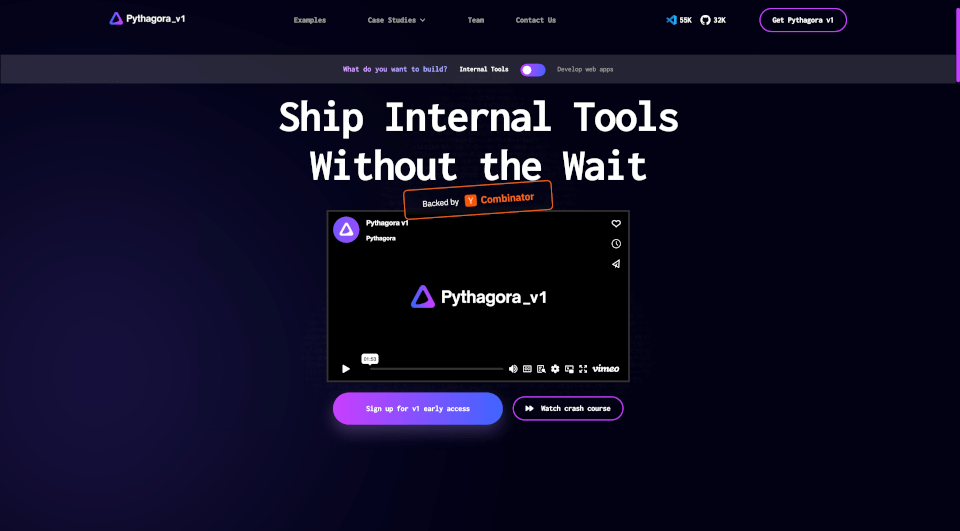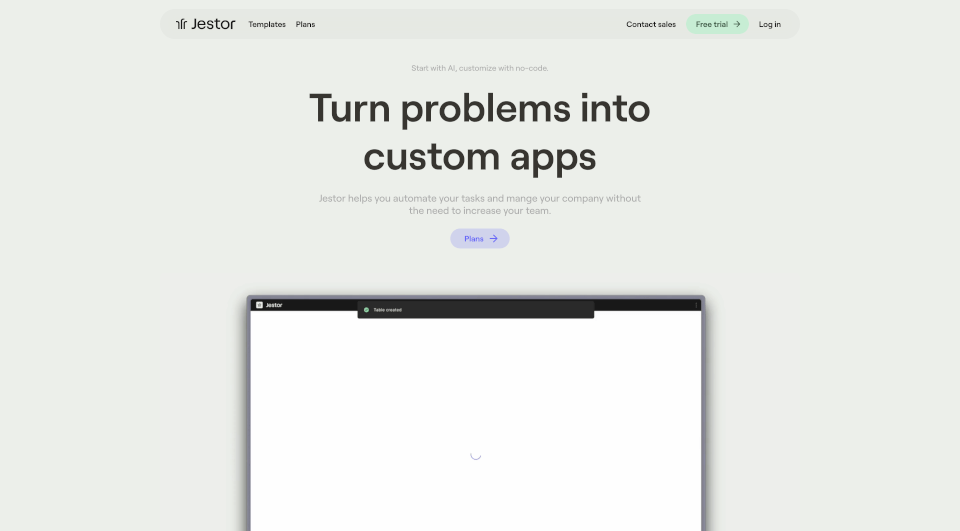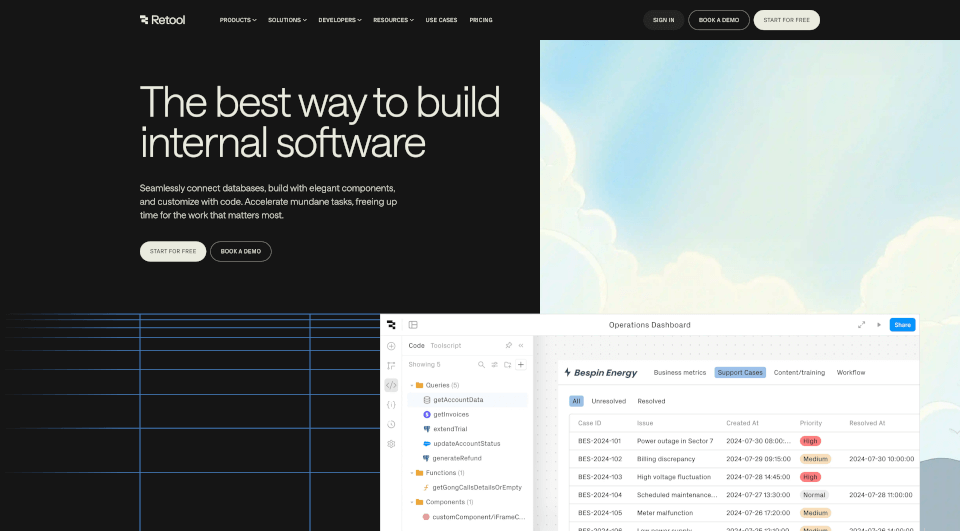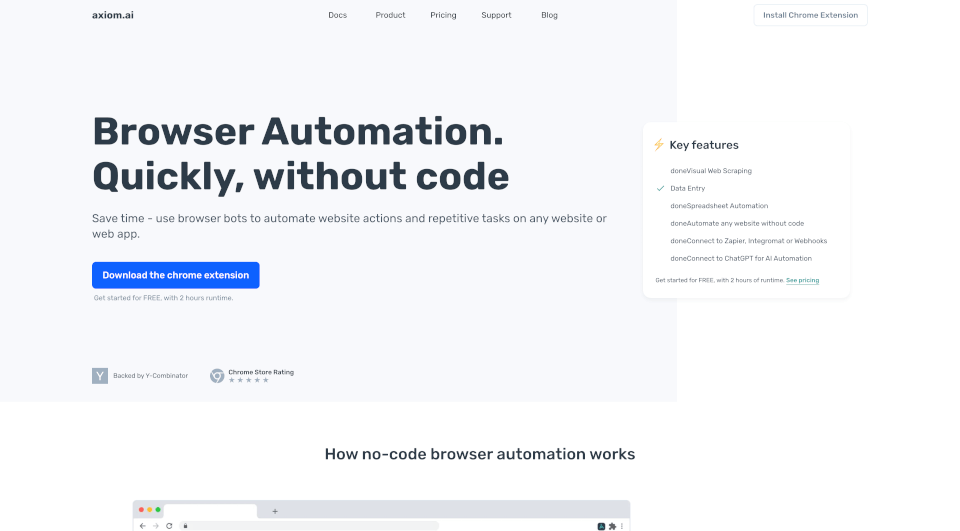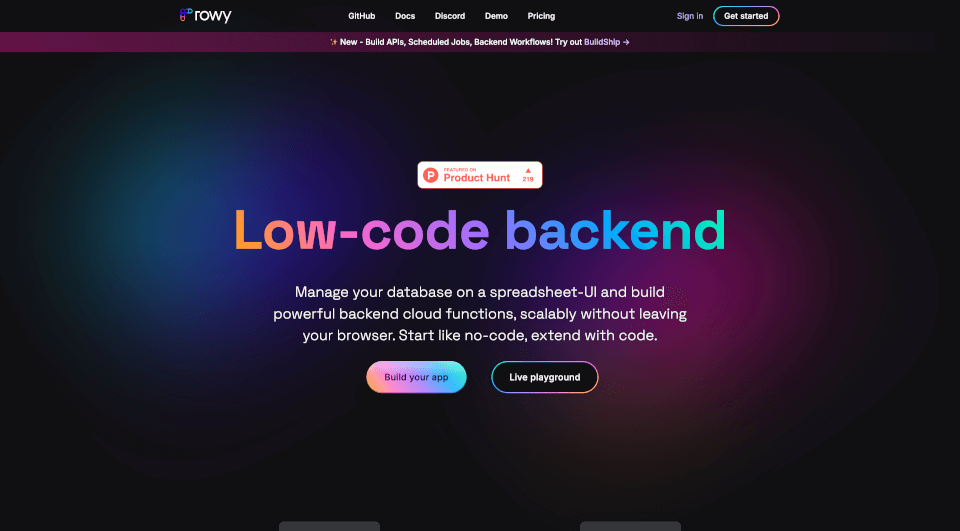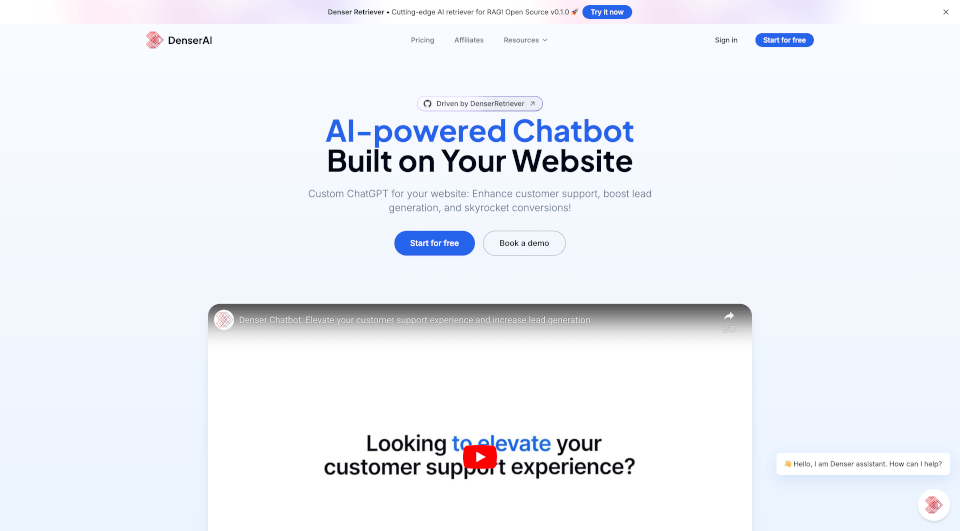What is Pythagora?
Pythagora AI is revolutionizing the way internal tools are built and deployed within organizations. This innovative platform combines the power of artificial intelligence with a low-code approach, enabling teams to create tailored applications that enhance productivity and streamline workflows. With Pythagora AI, users can build robust internal tools quickly and efficiently, significantly reducing the time and effort typically required for development.
What are the features of Pythagora?
Pythagora AI comes packed with a variety of features designed to simplify the development process and drive efficiency:
- Low-Code Development: Users can create applications with minimal coding knowledge, allowing even non-developers to participate in building critical internal tools.
- Rapid Deployment: Most applications can be built and deployed in under eight hours, drastically cutting down on development timelines.
- Production-Ready Code: Pythagora generates modular, maintainable code, ensuring that applications are not only functional but also ready for real-world use.
- Advanced AI Integration: Powered by state-of-the-art large language models (LLMs) like GPT-4o and Claude Sonnet 3.5, Pythagora enhances the coding process with intelligent suggestions, debugging capabilities, and code reviews.
- Version Control Management: The platform handles the entire codebase using Git, making it easy to track changes and collaborate with team members.
- Automated Testing: Coming soon, this feature will allow users to automatically generate tests, ensuring high-quality code and helping to scale applications effectively.
- Cloud Deployment: Users can deploy their apps online with a single click, making the transition from development to production seamless.
What are the characteristics of Pythagora?
Pythagora AI is distinguished by its combination of simplicity and power. The platform is designed to be user-friendly, making it accessible for individuals with varying technical expertise. Some key characteristics include:
- User-Centric Interface: The platform integrates an intuitive interface, simplifying the process of application development.
- Interactive AI Assistance: Pythagora not only writes code but also interacts with users to gain feedback, making it a collaborative tool that learns and adapts.
- Open-Source Philosophy: The core AI system is open-source, fostering community engagement and encouraging innovation in AI-driven tool development.
What are the use cases of Pythagora?
Pythagora AI is versatile and can be applied across various industries and functions, including:
- Logistics Management: Teams can develop custom logistics tools to optimize operations, track shipments, and manage inventory effectively.
- Medical Research: Researchers can create applications to analyze data, manage project timelines, and collaborate with peers seamlessly.
- Customer Support: Custom user management tools can be built to streamline customer support processes, allowing teams to manage user data, track interactions, and process refunds efficiently.
- Internal Evaluation Tools: Applications like the LLM Eval Tool enable organizations to evaluate and compare outputs from different language models, ultimately improving decision-making processes.
How to use Pythagora?
Getting started with Pythagora AI is straightforward:
- Sign Up: Visit the Pythagora website and sign up for early access to the platform to begin your journey.
- Familiarize Yourself: Watch the crash course to understand the features and capabilities of Pythagora AI.
- Start Building: Use the user-friendly interface to start creating applications. Provide clear specifications, and let Pythagora guide you through the development process.
- Deploy Your Application: Once your application is built, deploy it with a single click to make it available for use within your organization.
